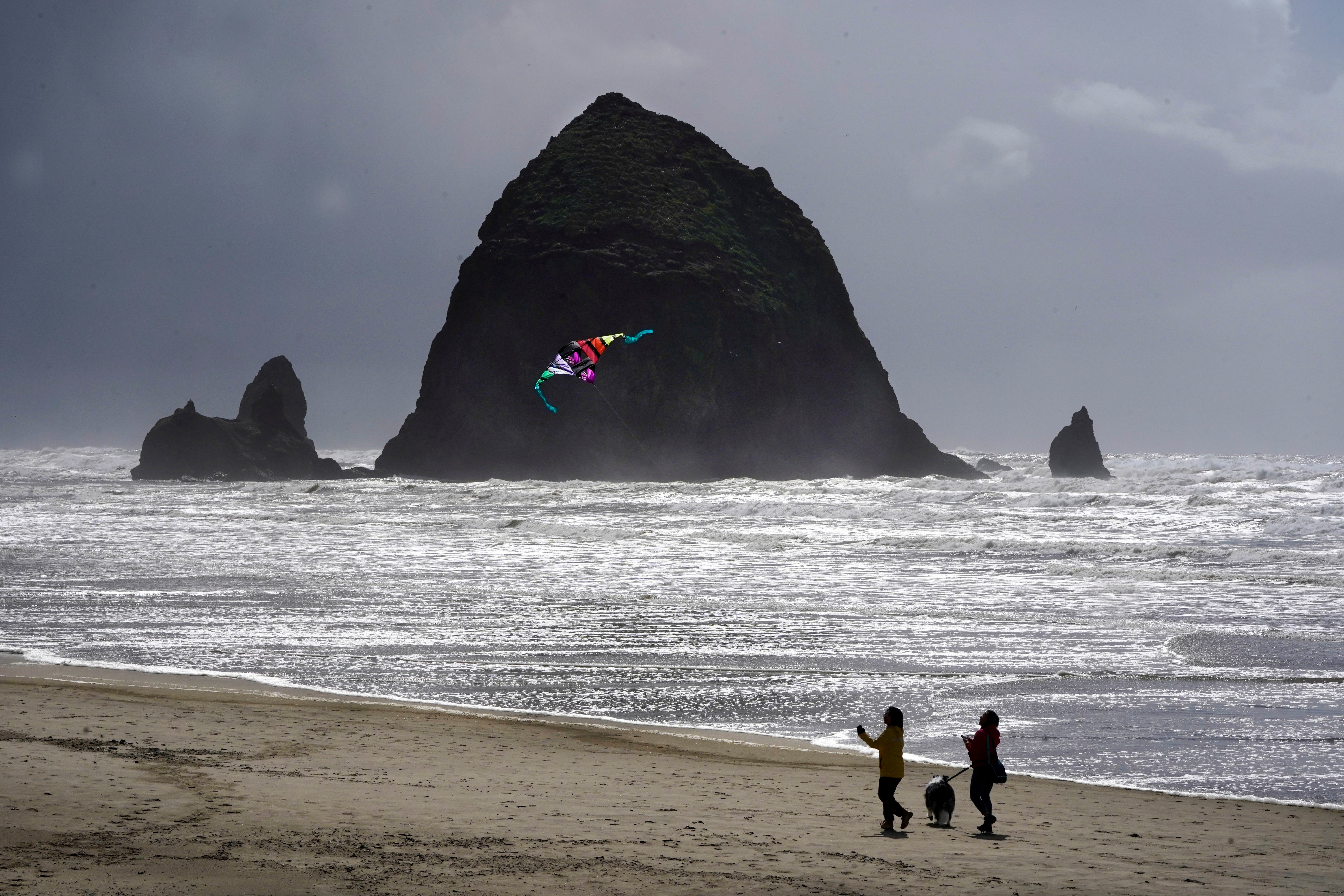Oregon's Cannon Beach reopens after cougar sighting on iconic coastal rock led to closure
Oregon's popular Cannon Beach has reopened after closing because of a cougar sighting on Haystack Rock

Your support helps us to tell the story
From reproductive rights to climate change to Big Tech, The Independent is on the ground when the story is developing. Whether it's investigating the financials of Elon Musk's pro-Trump PAC or producing our latest documentary, 'The A Word', which shines a light on the American women fighting for reproductive rights, we know how important it is to parse out the facts from the messaging.
At such a critical moment in US history, we need reporters on the ground. Your donation allows us to keep sending journalists to speak to both sides of the story.
The Independent is trusted by Americans across the entire political spectrum. And unlike many other quality news outlets, we choose not to lock Americans out of our reporting and analysis with paywalls. We believe quality journalism should be available to everyone, paid for by those who can afford it.
Your support makes all the difference.Oregon’s Cannon Beach, which was closed over the weekend after a cougar was spotted on the iconic Haystack Rock, reopened to visitors Monday following the animal's departure.
The U.S. Fish and Wildlife Service said officials confirmed that the big cat had moved on from the craggy coastal formation. A game camera captured an image of it leaving the rock Sunday night, and tracks were also found heading away, federal officials said.
Multiple agencies and organizations, from local and state police to the state Department of Fish and Wildlife and the Parks and Recreation Department, responded to the cougar sighting Sunday morning. The beach was closed in order to protect people and allow it to return to its usual habitat.
State biologists believe the cougar ventured to Haystack Rock at low tide Saturday night to hunt birds, a behavior they have not previously witnessed at that site.
"While the forested areas along the coast are prime habitat for cougars, it is unusual that a cougar made its way on to Haystack Rock,” Paul Atwood, a biologist with the Oregon Department of Fish and Wildlife, said in a statement. “Their primary food source is deer, but they will also consume elk, other mammals and birds.”
However, cougars have been documented traveling to other similar, small, offshore islands in Washington state's Olympic Peninsula, U.S. Fish and Wildlife Service spokesperson Megan Nagel said via email.
Haystack Rock, protected as part of the Oregon Islands National Wildlife Refuge and managed by the U.S. Fish and Wildlife Service, is abundant with seabirds and sea life in the summer.
From March through September, tufted puffins, common murres, pigeon guillemot and black oystercatcher raise their young on the formation.
Part of the rock is closed year-round to all public use to protect nesting and roosting birds.